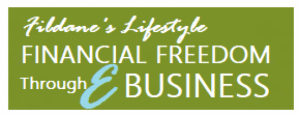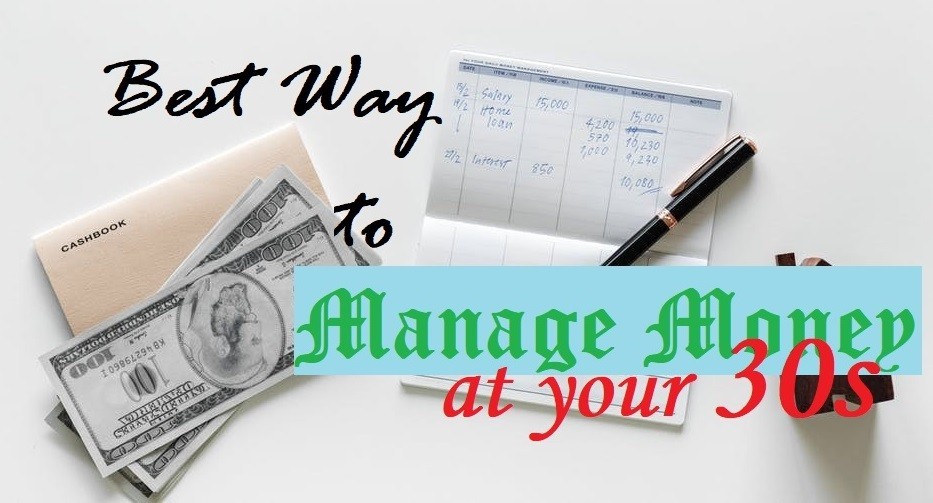
Hitting your 30s is like triggering a more matured financial attitude. You may start thinking about the major goals in life for yourself and for your entire family. At this stage of your life, you might have chosen the path of your career, started your own family, moved to your own place, and many other financial decisions.
Many financial decisions can have an enormous impact on your life. Making decisions at the right time ensures financial stability for your whole family.
As you read this article: Best way to manage your money at your 30s – 8 tips, be reminded that everyone has a different situation and objectives in life. In case you’re feeling overwhelmed and confused about managing your personal finance, it’s always great to find out some helpful suggestions from others.
Here are seven key financial steps people in their 30s should take. You can consider them as broad suggestions and refine them so they fit your personal situation and goals.
Best Way to Manage Your Money at your 30s – 8 Steps
1. Have an Emergency Fund.
An emergency fund is a bank account with money set aside to cover huge and unexpected expenses. Such as home-appliances repair or replacement, major car fixes, unexpected hospital bills and unemployment.
Ideally, the emergency fund should not be money lesser than your 6 months of net income. This fund will serve as your financial buffer. In your 20s, setting a goal of at least $1,000 in your savings account before starting pay off debts.
In your 30s, you’d probably have a different financial situation. You’re maybe married and have kids to take care of and mostly like a mortgage. Your foundation at your 20s will be a big plus if you managed your personal finances back then. However, $1,000 is not enough now if you’re no longer single. You may need more security than that in case you lose your job due to a layoff or long-term injury.
As a rule of thumb, 6months worth of your net income (the higher, the better though) as an emergency fund is the ideal number to target with. So you’ll have enough money to support your family in case of emergencies.
Set an automatic transfer to your bank account every month to ensure that your emergency fund will be empty especially when you need to use the money.
And as you reach the age of 40, try to save higher than 6 months to 1 year worth of your net income for your emergency fund.
Why is it important?
An emergency fund is a great way to establish a peace of mind with your finances. It will save you in any potential long-term financial problem in the future.
How?
Well, what would you do if your kids get sick and you don’t have any money?
Ask a family or a friend to lend you money? Oh, the fear of getting No and losing your face. I would rather help than to beg for someone’s help.
Or you acquire a quick loan or use your credit cards with very high interest rates. And this will bury you deeper in your debt.
So, go ahead start to build your emergency fund as soon as possible – the higher, the better.
2. Pay Off Your Debts Aside From Mortgage Debt.
Last month I wrote about the 7 Tips to Become Debt Free and achieve your financial freedom fast. I honestly hope that your personal finance was well-managed during your 20s so you don’t have to deal with debts in your 30s. On the other way around you have to deal with your debts as soon as possible as this will paralyze you to move up towards the ladder of financial freedom. You may want to read my article to get the best tips to get rid of your debt quickly.
3. Maximize Your Retirement Plan
I believe maximizing your retirement plan start must start as early as possible. If you haven’t done it yet, so it’s time for you to review your retirement situation in the future. And it is important to take note the retirement policy changes from time to time. To secure yourself as much as possible, the following can guide you through to a secured retirement life after 30 years or so.
- Estimate your retirement income needs. It is expensive to retire and expect around 70-80% of your pre-determined retirement need according to the experts.
- Become familiar with your social security retirement benefits – Social Securities pays around ONLY 30-40% of your retirement needs/benefits. So this is absolutely not enough when you retire if you want to continue your lifestyle.
- Learn about your (and your spouse’s) retirement savings plan – Employers normally offer pension or retirement plans. Check what benefit is worth, both now and when you both reach retirement ages.
- Contribute to your employers’ tax-sheltered savings plan. Participate and contribute as much as you can. Your income taxes will be lower and your employer will also contribute to your account.
- Open a separate retirement account. There are different types of retirement plans depending on which state or country you live in. Having an extra retirement plan will ensure your retirement plan and lifestyle when you reach your retirement age.
- Don’t use your retirement savings. Since retirement savings are normally tax-free or tax-deferred, it is not wise to use them if you happen to get into financial trouble. You will lose a big part of your principal, earnings and tax-deferral benefits. That’d be very expensive.
- Start now, set goals, and stick to them. The sooner you start saving, the more time your money has to grow. Stick to your goals and become financial secured when you reach your retirement age.
4. Start Investing Now.
The biggest advantage of your age at 30s is the chance to start investing early and your money has more time to grow. Remember that there is a big difference between a trader and an investor.
Traders are commonly referred to as the people who speculate the market in a very short period of time, i.e. a week, a day, an hour, or even a minute. And this is not what you wouldn’t want to do without a proper knowledge.
Investors are people who are investing their money in a long-term position.
Learn to invest properly and if you are afraid of the risk, consider to talk to your bank advisor about your plan. Banks have numerous financial products and instruments to maximize your profit and minimize your risk at the same time.
For example, banks can offer you professional portfolio management if you have a huge amount to invest. Otherwise, you can enroll in any of their investment programs to invest regularly according to the amount you wish to invest. And there are so much more in between like the mutual funds, index funds, ETF, corporate bonds etc.
And never dive into the stock market by yourself without any proper knowledge. Contact your bank advisor and start investing now.
5. Diversify Your Investments.
As you start investing, this will also trigger you to start learning to diversify your investments. Diversifying your investment will minimize your risks even more.
Here are some of the ways to consider when you can allocate your investments.
- Dividends Stocks – will give a yearly passive income through dividends or cash incentives.
- Government or Corporate Bonds – offer fixed rates in a fixed period of time.
- Real Estate – will secure inflation compared to stocks.
- Crowdfunding – another passive income source.
6. Start a College/Education Plan.
As soon as you get children – an education plan is a must so you can help your children to secure an education in the future. We don’t what would our education looks like after 15 years. Maybe at that time, everything can be done online so it will be free or much cheaper. Or maybe it will continue as it is – by raising tuition fees 5-10% every single year.
Securing our children’s future is one of the biggest responsibility we have as parents. There are different kinds or types of education plan depending on which country you are living in. If you live in the US, make sure you check the 529 plan which offers a variety of benefits. If you are in Europe or any other countries, most banks and insurance companies offer basically the educational plan for your children.
7. Have a Comprehensive Insurance.
Having a comprehensive insurance is very popular here in Europe, especially in Denmark. This is to secure your household from a tremendous financial disaster in case of accident, death, long-term disability, unemployment etc.
Here are the insurances that you may need to secure for your family and household.
- Life insurance
- Child’s insurance
- Accident insurance
- Medical insurance
- House/property insurance
- Car insurance (comprehensive)
- Unemployment insurance
- Travel insurance
It is important to start to have peace of mind in everyday life. Insurance is very important to secure your investments. Make sure to get life insurance as early as possible – because the premium gets higher depending on your age and if you have any chronic illness.
8. Update Your Will And Testament.
Majority of the population today has an outdated will. In fact, 70% of tAmericansans don’t have will and testament. If you have children/dependents or reconstituted family, then it is important to secure a will and testament no matter how little or how much you (and your spouse) have.
If your situation is simple, there are will and testaments available online. Make sure to check it out. If you happened to have a reconstituted family, wherein you or/and your spouse have children from the previous relationship, then you need to contact a lawyer to make sure that your wishes will be met.
And yes this is also important to have it secured at your 30s because there is no certainty in this life.
Related topics:
Top Five Financial Tips – For 60’s (Pre-Retirees MUST Aim For More Secure Retirement
Top Financial Tips – Catching Up for 50’s
Top Financial Planning Tips – For 40’s
The Power Of Investing Early – 4 Tips For 20’s
Managing Money For Children – Should You Blame Or Reward Your Parents?
Do you have any other financial tips for the 30s? Please feel free to write them down below. Goodluck to your journey to financial freedom and God bless.







Wow! I can relate to your first paragraph because here I am 31 and thinking about my major life goals. That couldn’t be more spot on. This post really lays out what you need to do. The one thing most people look over, including myself, is the Will and Testament. Such an important piece of paper and yet I do not have one. Something I surely need to work on. Great website and I enjoyed reading this post.
Thank you
Hello Donieal,
Thanks for stopping by. I’m Glad you liked my website and enjoyed reading this post.
Yes, the will and testament are indeed very important.
I myself have taken it for granted for years and realized how really important it was, just after I got married to a lawyer :-).
I know it’s very important, but how this paper really serves practically – is actually amazing to think that it’s a way of securing your family’s financial situation, especially when your time is up.
My best regards and God bless,
Che